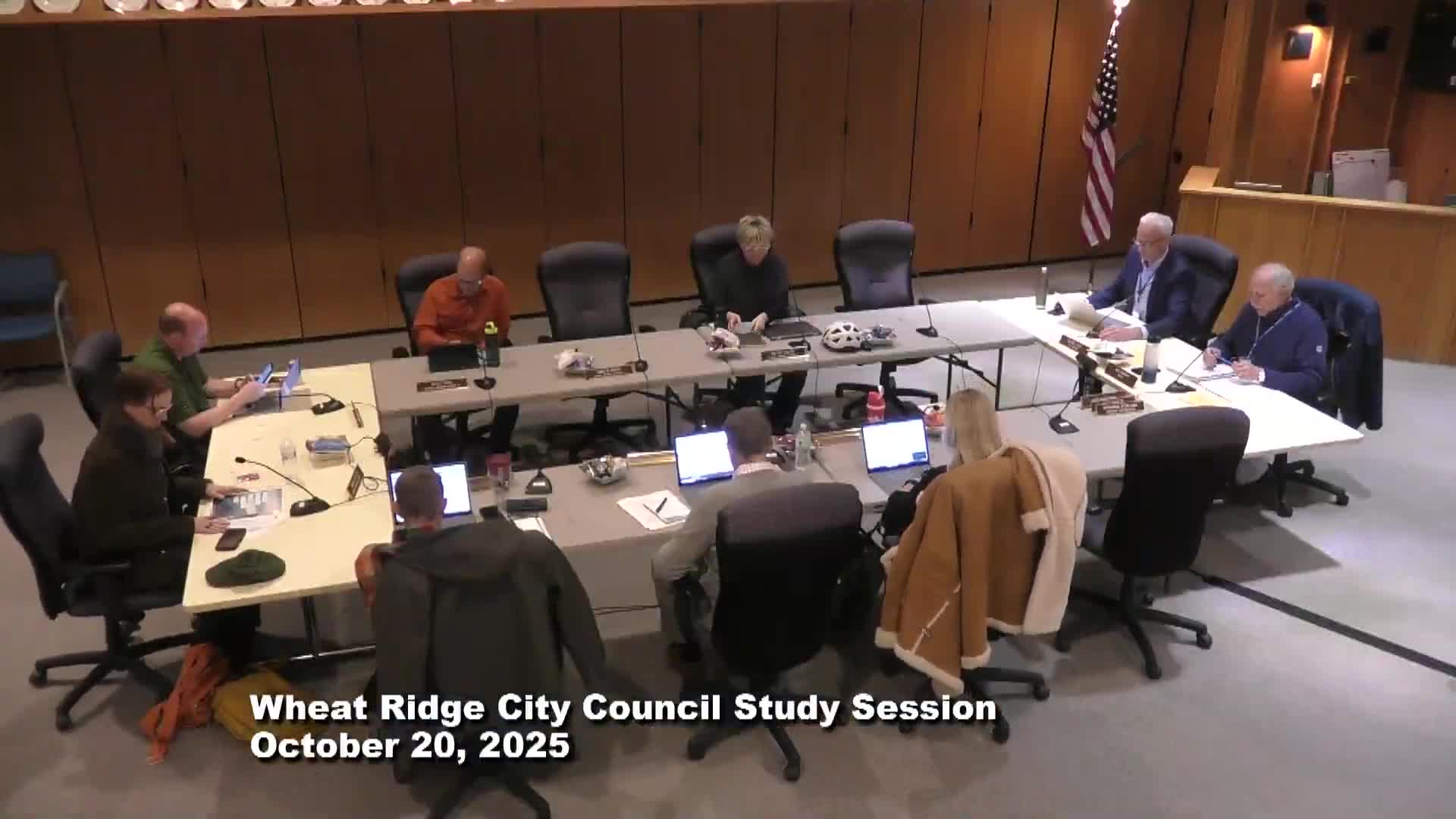Wheat Ridge City navigation team says 175 housing placements since program start; 83% remain housed after one year
Get AI-powered insights, summaries, and transcripts
Subscribe
Summary
City housing navigators reported Monday that the Wheat Ridge program has placed 175 people into transitional or permanent housing since its inception, emphasized aftercare and new severe-weather arrangements and asked councilors for continued support and awareness of funding limits.
Wheat Ridge City housing navigators updated the City Council Monday on the city’s Homeless Navigation Program, saying it has helped 175 people into transitional or permanent housing since the program began and that 83% of households remain housed after one year, staff said.
The presentation, given by Corey Kohler, the city’s housing navigator, and a colleague identified only as Maddie, summarized outreach practices, referral sources, placement timelines and program costs, and described changes to severe-weather sheltering for the coming season.
Kohler said the city joined the Jeffco Homeless Navigation Collaborative in December 2020 and now serves Wheat Ridge and Edgewater. Outreach staff make weekly contacts, develop rapport, and offer intake into the Homeless Management Information System (HMIS) to track documents and services. "We help people out with collecting their vital documents," Kohler said, citing birth certificates and IDs as examples.
City staff provided data showing 175 total transitional and permanent placements since the program began, including 34 placements since the team last appeared before council a year ago. The team reported a median 129 days from first contact to housing placement and a maximum observed case of 936 days. Kohler highlighted the program’s aftercare work and said, "we're seeing the 83% of households are still housed" at one year.
Program spending categories discussed included bridge housing (temporary motel stays while permanent housing is secured), move-in costs (deposits, first month's rent, renter’s insurance) and basic furnishings. Kohler said the program began intentionally tracking expenses in 2023 and that median "cost to reach housing" in the captured data was $15.50, while some cases required much higher outlays when extended motel stays were needed while awaiting paperwork or unit availability.
Kohler and Maddie described referral sources: about half of referrals come from city staff (including parks, public works, municipal court and environmental services); other referrals come from community partners such as Family Tree and Jefferson Center for Mental Health and from local motels. The navigators said they also rely on partnerships with faith-based organizations such as Glory of God Lutheran Church and Holy Cross Lutheran for donation drives and other support.
On severe-weather response, staff said the Lakewood Navigation Center (previously operating under the Recovery Works name) is closed for renovations and is not expected to reopen until about December. To cover immediate needs, the city has entered into an intergovernmental agreement (IGA) with neighboring jurisdictions to provide motel vouchers when severe weather is declared. Staff described the IGA as planning for roughly 200 motel rooms to be available across participating jurisdictions for an estimated 50 declared severe-weather nights, and also noted an "extreme weather" pop-up shelter run by Jefferson County emergency management with hot meals, storage and security for extremely cold nights.
Councilors asked about donations and direct giving; Kohler said there is a link through the Wheat Ridge Community Foundation and that staff can re-send a donation flyer. Councilors also asked how local performance compares to other programs; staff pointed to the National Alliance to End Homelessness as a data source but characterized the program’s 83% one-year retention as "anecdotally" somewhat higher than some peers, crediting the program’s small size and flexible funding.
Councilors raised other operational items: pet-friendly housing strategies (navigators search for pet-friendly units and recommend emotional-support-animal documentation when appropriate); family reunification assistance (staff verify receiving households before funding travel); utility- and emergency-assistance referrals (staff cited LEAP and variable funding streams); and immigration concerns (staff said they had not seen wide hesitancy to engage but refer families with children to county family navigators).
Multiple councilors praised the navigation team’s work and urged continued funding and coordination. Staff said they will notify council if they see major shifts in need or funding, and will send additional information to councilors in follow-up emails.
No formal council action or vote was taken on the presentation. Council discussion remained supportive and focused on operational questions and outreach steps.
